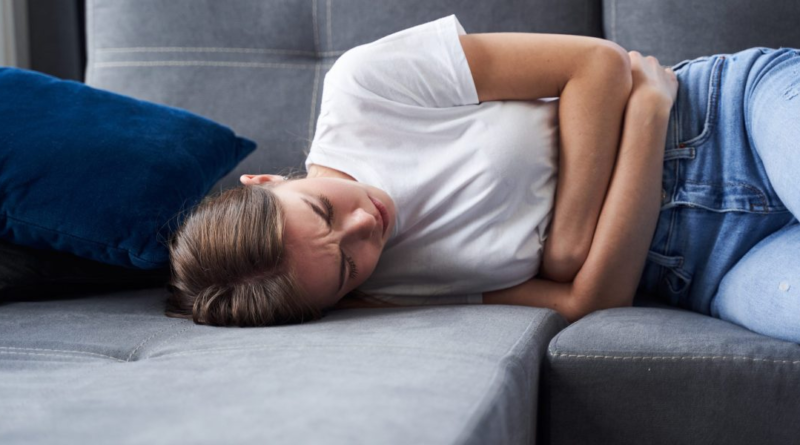The ‘hot girls have stomach issues’ social media trend makes sense—Gen Z women experience more anxiety than any other demographic
It is a well-known saying among young women on TikTok that “hot girls have stomach issues.” Turns out, Drake does too.
The Grammy-winning rapper shared in a Friday episode of his radio show Table For One that he’s taking a break from his music “for maybe a year or so” to focus on his health and deal with his chronic stomach problems. The announcement has drawn online comparisons to the TikTok phrase. But as absurd as the saying sounds, it has some backing to it: Stress and anxiety—which women and Gen Z experience with greater prevalence than men and other generations, respectively—are directly connected to stomach pain.
Women experience “markedly greater prevalence” of anxiety disorders than men, according to a 2017 study by the National Institutes of Health. Take panic disorder, for example, which is characterized by frequent and unexpected panic attacks with symptoms like elevated heart rate, chest pain, and nausea. The disorder is more than twice as common among women as compared to men.
Also more frequently experienced by women are generalized anxiety disorder (characterized by constant and uncontrollable worrying), social anxiety disorder (characterized by fear of social or performative situations), and specific phobias, the study said.
There are a number of reasons why this is the case. One is that women more often attach positive associations to worry, said another study by the National Institutes of Health. For instance, worry can be useful when it increases one’s safety. Differences in biology and socialization between the two sexes may also have a part to play.
Why does this matter? Stress and anxiety are common causes of stomach pain and other gastrointestinal (GI) symptoms, according to an article by UChicago Medicine. Research reveals a strong connection between the brain and gut, as they are connected through a branch of the central nervous system. That means stress and anxiety-inducing situations affect not only the way intestines and the stomach move waste through the body, but also the delicate balance of gut bacteria levels, which can cause discomfort if out of whack.
Roll in the fact that Gen Zers, aged 11 to 26, have the worst reported mental health of any generation. Having lived through a global pandemic and issues like gun violence, sexual assault, and climate change dominating the news, less than half of young people (45%) report having excellent or very good mental health, according to a 2018 report by the American Psychological Association. In comparison, 56% of millennials, 51% of Gen Xers, and 70% of baby boomers responded the same.
#HotGirlsWithIBS
The not-so-unexpected result of it all is a legion of girls in their teenage years and 20s documenting their pain on social media.
In the past couple years, a TikTok trend has emerged in which women share what it’s like living with chronic stomach issues, including irritable bowel syndrome (IBS)—a condition that affects the stomach and intestine and can cause cramping, abdominal pain, bloating, diarrhea, and constipation.
Nadya Okamoto, an influencer and startup founder whose company wants to destigmatize menstrual cycles, posted a TikTok calling herself a “constipated queen.” In the video, she is dressed in an outfit, similar to one Rihanna wore to show off her baby bump, but with the text, “Haven’t pooped in over a week, but my bloated poo-filled belly is coming in handy for tonight!” The TikTok has over 300,000 likes and 3.8 million views since it was posted in April 2022.
These women are raising awareness—the tag #HotGirlsWithIBS has over 112 million views on TikTok—while also normalizing the health issue. Even men have joined in on the joke, like one TikTok saying, “She’s a 10 but she has stomach issues so she’s an 11.”
But others say this trend may be inadvertently creating harmful rhetoric by linking one’s health issues to their attractiveness.
Natasha Boyd, a Los Angeles–based writer, addressed the topic in a June 2022 article entitled “Sick to Our Stomachs: Why does everyone have IBS?” in The Drift, an online journal.
“The cultural rise of IBS also makes sense in the context of wellness and body positivity — it’s no longer kosher to insist that ‘nothing tastes as good as skinny feels,’” Boyd wrote. “Women are supposed to love themselves too much for that. Instead they have to declare that they shit their pants if they eat gluten or dairy, so that abstention from those foods is seen as an act of self-care, and not disordered eating. Instead of choosing not to eat, people with IBS just can’t.”


